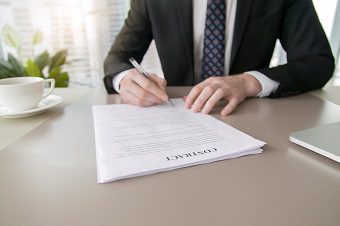Aline Cavalcante de Souza Sanches
Lawyer at Marcos Martins Advogados
The Superior Court of Justice recently scheduled Special Appeal No. 2016/0325804-4 for judgment on November 18, 2020, which will define the understanding on the interpretation of article 85, paragraph 8, of the Code of Civil Procedure, in order to decide whether it is possible to arbitrate attorney’s fees by equity when the value of the case is high.
This legal provision deals with the possibility of setting fees by equitable assessment, in the event that the economic gain involved in the action is derisory or inestimable, as well as when the value of the case is very low.
However, there is a controversy in Portuguese jurisprudence as to whether, by analogy, this provision would apply to cases in which the value of the case is high.
The argument in favor of applying this interpretation is that setting attorney’s fees at the legal minimum of 10% (ten percent) of the value of the case, when this is exaggerated, would result in the unlawful enrichment of the winning party’s attorneys, failing to comply with the criteria of items I, II and III, § 2, of 85 of the Code of Civil Procedure.
These sections define that the setting of attorney’s fees must take into account the degree of professional zeal, the place where the services were rendered, the nature and importance of the case, and some of the case law believes that the remuneration calculated on the high value of the case remunerates the lawyer beyond the work and effort undertaken in the claim, in a disproportionate manner, and therefore in contravention of the principle of reasonableness.
To the contrary, some of the Courts of Justice believe that, by literal interpretation of the provisions of article 85, paragraph 8, of the Code of Civil Procedure, it is only possible to set attorney’s fees in equity in the express case provided for by law, i.e. when the economic gain is derisory or inestimable, as well as if the value of the case is very low.
In the absence of the express situations provided for the application of equitable fixing, it is understood that the general rule of article 85, paragraph 2, of the Code of Civil Procedure should be observed, which provides, in verbis:
“The fees shall be fixed between a minimum of ten and a maximum of twenty percent of the amount of the conviction, of the economic profit obtained or, if it is not possible to measure it, of the updated value of the cause, taking into account:”
From this literal point of view, regardless of how high the value of the case is or the economic gain involved in the claim, attorney’s fees must be at least 10% (ten percent) and no more than 20% (twenty percent) of the value involved in the case.
What we have in this thesis is that the amount of attorney’s fees must comply with the provisions of article 85, paragraph 2, of the Code of Civil Procedure, even in lawsuits involving large sums.
In order to prevent the simultaneous application of controversial understandings, defining which one should be used by the Courts in the best application of the law, in attention to legal certainty, on November 18, 2020, the Superior Court of Justice will analyze a Special Appeal, deciding on the best way to apply article 85 of the Code of Civil Procedure.
In the Special Appeal that will be considered by the Superior Court, the lawyer wants the attorney’s fees to be calculated based on the value of the cause, which is approximately R$ 2.5 million, invoking article 85, paragraph 2, of the Code of Civil Procedure, and, in its defense, the Public Treasury argues that this amount is exaggerated, requesting that the fees be fixed by equity, based on paragraph 8 of the same legal provision.
Marcos Martins Advogados is attentive to the judgment that will soon be handed down by the Superior Court of Justice, and is ready to assist you by applying the most contemporary jurisprudential understandings and institutes of Civil Procedural Law.








